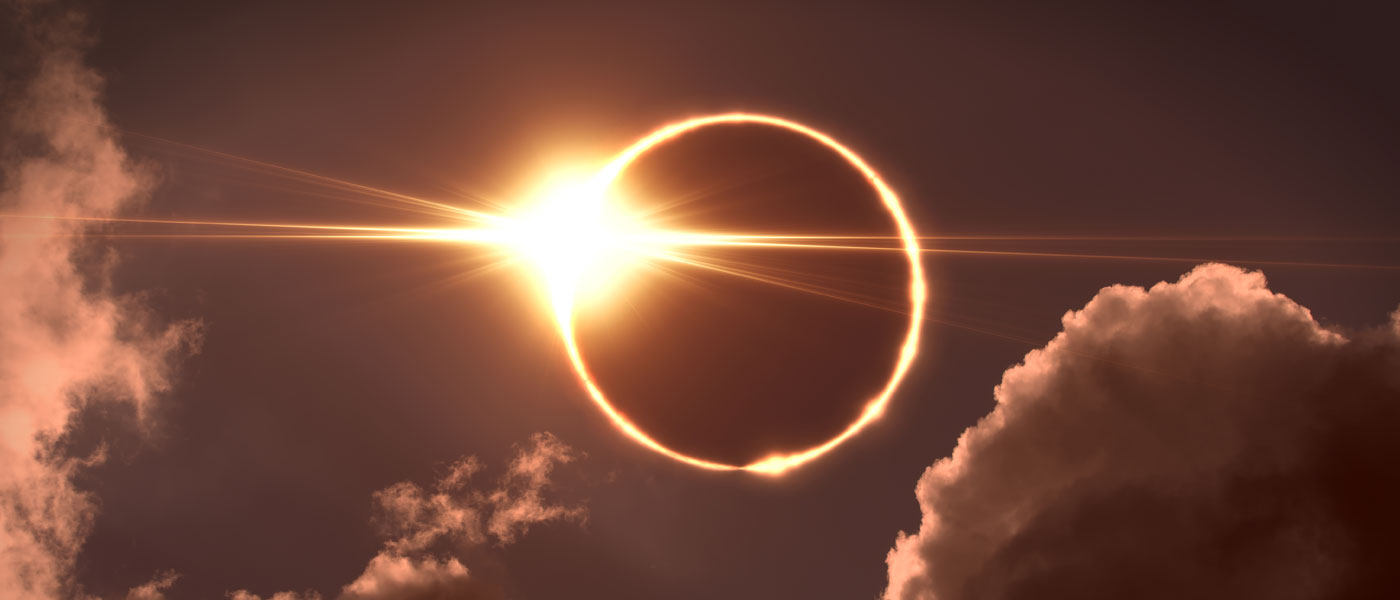Editor’s note: Looking at a solar eclipse without proper protection can cause eye damage. In most cases, the effects are temporary, but the damage can be permanent. It takes just seconds for damage to occur. Symptoms of eye damage from a solar eclipse include blurry vision, headache, a blind spot in the central vision, sensitivity to light, distorted vision and changes in perception of color. If you experience these symptoms after the solar eclipse, you should contact your ophthalmologist. Learn more about the impact of the solar eclipse on vision.
On Monday, April 8, a total solar eclipse will cross Cleveland. Except during the brief total phase of a total solar eclipse, when the moon completely blocks the sun’s bright face, it is not safe to look directly at the sun without specialized eye protection for solar viewing. Viewing any part of the bright sun through a camera lens, binoculars or a telescope without a special-purpose solar filter secured over the front of the optics will instantly cause severe eye injury.
The university is offering solar eclipse glasses to employees and students who will be on campus during the solar eclipse. There is a limited supply so only one pair of glasses per person will be available.

If you will be on campus, you can use your CWRU ID to pick up solar eclipse glasses in the following locations beginning Monday, April 1, during regular business hours:
- School of Medicine (research): Jill Stanley in Sears Tower, Room T201 (pickup only available April 8)
- Dental Clinic: William Beard at the security desk
- School of Dental Medicine: Kristen Williams in Samson Pavilion, Room 439M
- School of Medicine (Health Education Campus): Lesa Goodman in Samson Pavilion, Room 409K
- Frances Payne Bolton School of Nursing (Health Education Campus): Margaux Francis in Samson Pavilion, Room 471M
- School of Law: Teresa Underwood in the law mailroom
- College of Arts and Sciences: dean’s office suite in Crawford Hall on the seventh floor (lobby desk)
- Jack, Joseph and Morton Mandel School of Applied Social Sciences: Suite 315
- Commuter Lounge: Kristen Urig at the Thwing Center Service Desk
- Facilities: Bridget Flowers at the Cedar Avenue Service Center
- UGEN: Tiffany Torres at Access Services on the lower level of Crawford Hall
- Case School of Engineering: David Conger in Nord Hall, Room 522
- Weatherhead School of Management: Laura Watt at the Peter B. Lewis Building reception desk
- North area office: Justin Long in Wade Commons
- South area office: Brandon Kelly in Fribley Commons
- Public Safety: Paige Herron at 1689 E. 115th St.
- University Health and Counseling Services: Melissa Borowski at Clinic C
Eye safety during a total solar eclipse (from NASA’s website)
When watching the partial phases of the solar eclipse directly with your eyes, which happens before and after totality, you must look through safe solar viewing glasses (“eclipse glasses”) or a safe handheld solar viewer at all times. Eclipse glasses are not regular sunglasses; regular sunglasses—no matter how dark—are not safe for viewing the sun. Safe solar viewers are thousands of times darker and ought to comply with the ISO 12312-2 international standard. NASA does not approve any particular brand of solar viewers.
Always inspect your eclipse glasses or handheld viewer before use; if torn, scratched, or otherwise damaged, discard the device. Always supervise children using solar viewers.
Do NOT look at the sun through a camera lens, telescope, binoculars, or any other optical device while wearing eclipse glasses or using a handheld solar viewer—the concentrated solar rays will burn through the filter and cause serious eye injury.

